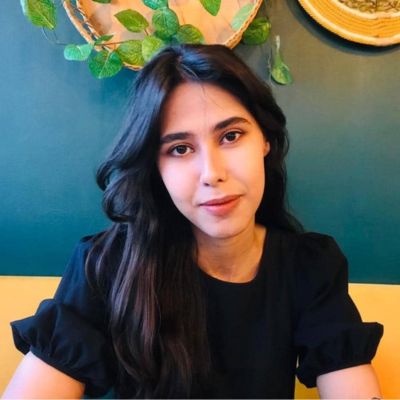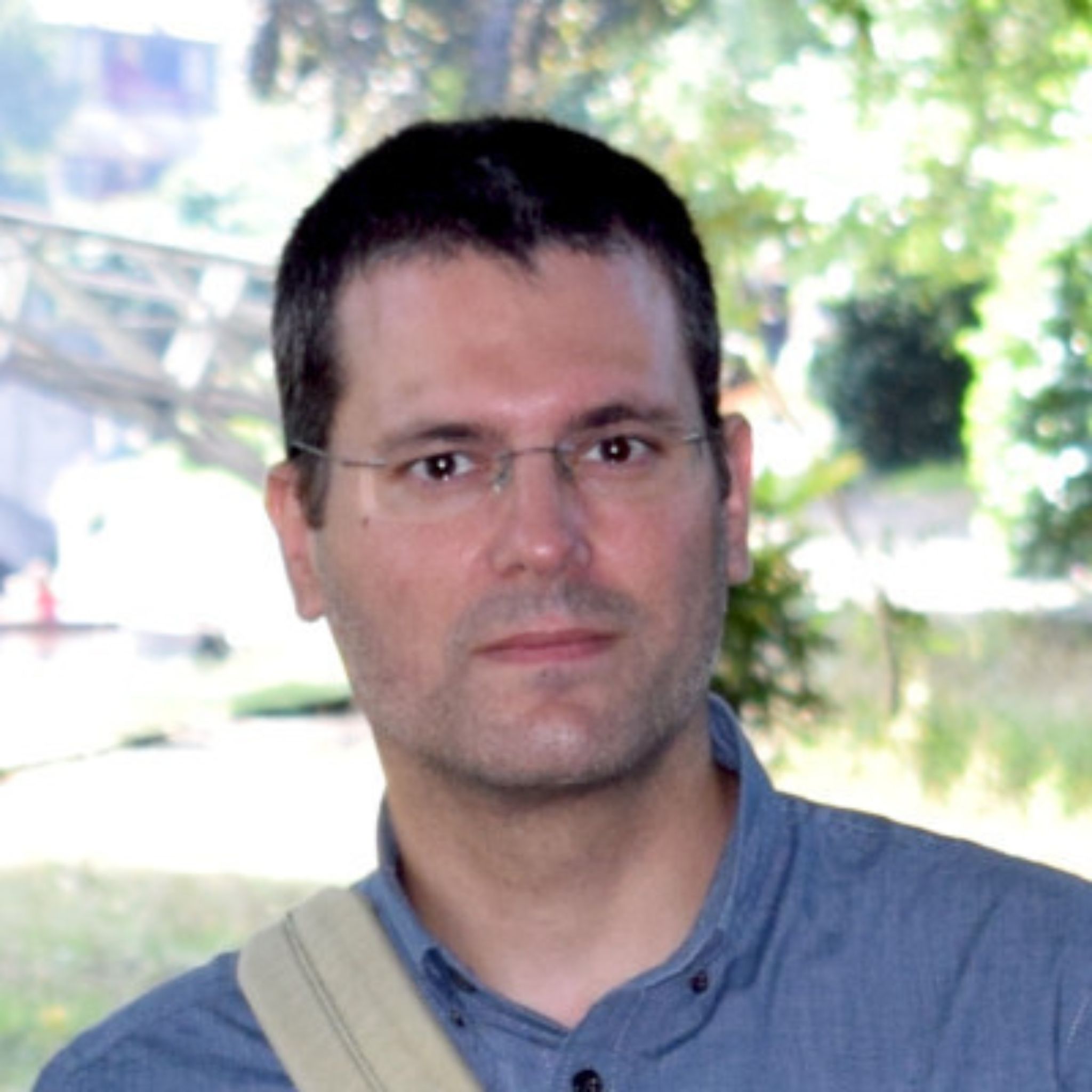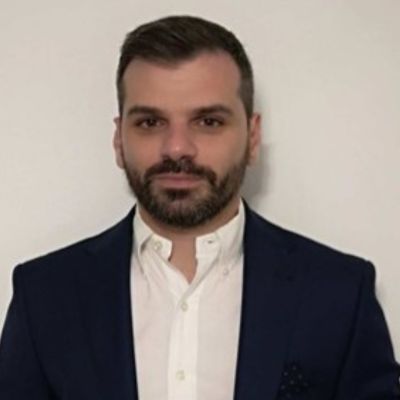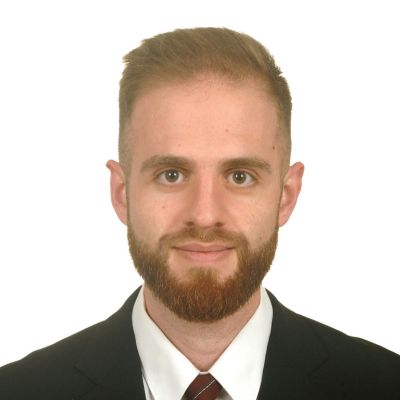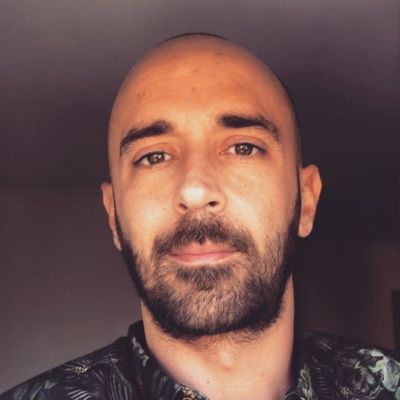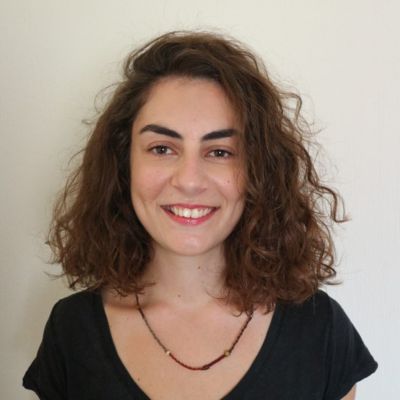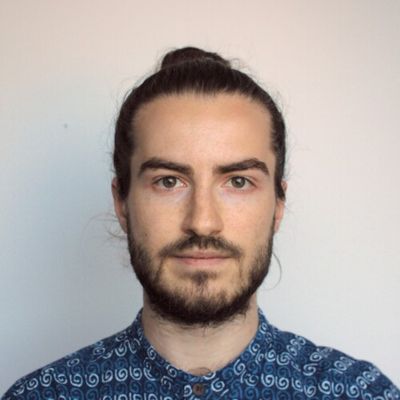Quan Pan is an experienced researcher specialising in hydraulics and hydrodynamics. His work focuses on applying numerical simulation tools to solve complex engineering problems and develop decision support systems. He is also deeply interested in exploring and learning emerging technologies across diverse domains.
Houda Ben Salah
Houda Ben Salah is a Software Engineering specialising in Data Science and Artificial Intelligence, with strong expertise in machine learning, natural language processing, and deep learning. She has worked on a wide range of Software, AI and data-driven solutions, showcasing the ability to translate complex challenges into practical, innovative outcomes.
She is recognised for her analytical mindset, adaptability, and problem-solving skills, and thrives in collaborative, international environments.
Fluent in English, French, Arabic, and with knowledge of German and Italian, Houda brings a global perspective and a passion for applying AI to drive impact in fintech, automotive, and sustainable innovation.
José Luis Fernández Rueda
José Luis Fernández Rueda is a Computer Engineer with a Master’s degree in Intelligent Systems and two decades of experience specialising in the implementation of algorithms for the processing of large-scale datasets. He began his career working in Digital Image Processing and Geographic Information Systems, before transitioning into Biomedical Research, where he has taken on a hybrid role as both a data scientist and a developer, working on low-level applications and distributed systems for the processing of large-scale omics data.
As a member of the development team at LifeWatch ERIC, he contributes to the development of the organisation’s software infrastructure.
Main publications:
Méndez-Vidal, C., Bravo-Gil, N., Pérez-Florido, J., Marcos-Luque, I., Fernández, R. M., Fernández-Rueda, J. L., … & Antiñolo, G. (2025). A genomic strategy for precision medicine in rare diseases: integrating customized algorithms into clinical practice. Journal of Translational Medicine, 23(1), 86.
Peña-Chilet, M., Roldán, G., Perez-Florido, J., Ortuno, F. M., Carmona, R., Aquino, V., … & Dopazo, J. (2021). CSVS, a crowdsourcing database of the Spanish population genetic variability. Nucleic acids research, 49(D1), D1130-D1137.
López-Sánchez, L. M., Jurado-Gámez, B., Feu-Collado, N., Valverde, A., Cañas, A., Fernández-Rueda, J. L., … & Rodríguez-Ariza, A. (2017). Exhaled breath condensate biomarkers for the early diagnosis of lung cancer using proteomics. American Journal of Physiology-Lung Cellular and Molecular Physiology, 313(4), L664-L676.
Salvador J. Fernández Bejarano
Salvador is a Data Management Specialist at ICT-Core, with a solid background in environmental informatics. He holds an MSc in Marine Biodiversity and Conservation and has extensive experience managing and curating research datasets in alignment with FAIR principles. His work has contributed to the FAIR publication of datasets across various disciplines, with a particular focus on geospatial and biodiversity data.
Salvador has developed and maintained research software, including R packages, to streamline data access, enhance reproducibility, and enable integration with semantic web technologies. He has been involved in the design of the European Ocean Digital Twin, helping bridge environmental data systems with real-time simulations to support data-driven decision-making. In addition, he is experienced in the use and promotion of Open Linked Data, contributing to interoperable knowledge systems that connect datasets across domains and institutions.
Since joining LifeWatch ERIC in 2025, he has applied his expertise to the design and execution of data management plans across diverse scientific projects, while also leading capacity-building workshops and supporting the wider adoption of open science practices
Main publications:
Musimwa, R., Standaert, W., Stevens, M., Fernández Bejarano, S. J., Muñiz, C., Debusschere, E., Pint, S., & Everaert, G. (2025). Climate-induced habitat suitability modelling for pelagic fish in European seas. Frontiers in Marine Science, 12. https://doi.org/10.3389/fmars.2025.1501751
Webb, T., Beja, J., Fernández Bejarano, S. J., Ramos, E., Sainz-Villegas, S., Soetaert, K., Stolte, W., Troupin, C., & Weigel, B. (2025). Realising the potential of interoperable data products to improve the outlook for marine biodiversity: Lessons from the European marine observation and data network. Marine Policy, 173, 106578. https://doi.org/10.1016/j.marpol.2024.106578
Assis, J., Fernández Bejarano, S.J., Salazar, V.W., Schepers, L., Gouvêa, L., Fragkopoulou, E., Leclercq, L., Vanhoorne, B.,Tyberghein, L., Serrão, E.A., Verbruggen, H., De Clerck, O. (2024) Bio-ORACLE v3.0. Pushing marine data layers to the CMIP6 Earth system models of climate change research. Global Ecology and Biogeography. https://doi.org/10.1111/geb.13813
Nikos Minadakis
Nikos Minadakis is a software engineer, semantic architect and large scale projects manager. He graduated from the Department of Computers Engineering and Informatics, University of Patras, and holds an MSc in Computer Science and Technology. He has expertise in e-research infrastructures design and development, conceptual modeling and semantic information systems implementation. He is a founding member of Advance Services, a deep tech enterprise and was a former technology supervisor and software engineer at the Foundation of Hellas and Technology (FORTH) from 2013 until 2019. He has participated in many National and European Projects, including PHAROS Artreseach, Lifewatch, iMarine, BlueBRIDGE and has co-authored more than 40 scientific publications.
Main publications:
1. N. Minadakis, Y. Marketakis, H. Kondylakis, G. Flouris, M. Theodoridou, M. Doerr, G. de Jong. “X3ML Framework: An Effective Suite for Supporting Data Mappings”. Workshop for Extending, Mapping and Focusing the CRM – co-located with TPDL’2015, Poznan, Poland, September 2015.
2. N. Minadakis, Y. Marketakis, C. Bekiari, M. Doerr, N. Bailly, A. Gougousis, S. Nikolopoulou, D. Mavraki, C. Arvanitidis. “LifeWatch Greece Data-Services: On Supporting Metadata and Semantics Integration for the Biodiversity Domain”. In 13th International Congress on the Zoogeography and Ecology of Greece and Adjacent Regions (ICZEGAR’2015), Heraklion, Crete, October 2015.
3. C. Arvanitidis, E. Chatzinikolaou, N. Bailly, E. Panteri, C. Bekiari, M. Doerr, N. Minadakis, Y. Marketakis, S. Faulwetter, K. Keklikoglou, D. Mavraki, S. Nikolopoulou, A. Oulas, E. Pafilis, N. Pattakos, C. Pavloudi, T. Patkos, K. Varsos, V. Gerovasileiou, T. Bourtzis, J. Lagnel, A. Gougousis (and 29 others). “LifeWatchGreece: Construction and operation of the national Research Infrastructure in the framework of the LifeWatch ESFRI”. In 13th International Congress on the Zoogeography and Ecology of Greece and Adjacent Regions (ICZEGAR’2015), Heraklion, Crete, October 2015.
José Antonio Zaíño Rodríguez
Full Stack Engineer at LifeWatch ERIC.
He holds a degree in Telecommunication Technologies Engineering and a master’s degree in Telematics and Telecommunication Networks. He specialises in full stack software development, working on both frontend and backend technologies. Since 2020, he has been working in the private sector, focusing on building and optimising software solutions. Currently, he is developing the LifeWatch Search Engine, available at search.lifewatch.eu.
Majid Fiaz
Pierluigi Calasso
Pierluigi Calasso is the Help Desk Technician of the LifeWatch ERIC 1st Level Help Desk.
He supports the users of the infrastructure through the management of requests coming from the LifeWatch ERIC Help Desk service, by directly replying to the inquiries or forwarding them to the appropriate person within the infrastructure.
He is an expert in customer care services, having worked as web tracking specialist advisor and quality analyst for international brands during his last work experiences.
Pierluigi has a web designer background and a great passion for everything concerning new technologies and the internet world.
Eftychia Tzafesta
Data Science Specialist
She holds a Master’s in Ichthyology and Aquatic Environmental Sciences from the University of Thessaly and a Ph.D. from the University of Salento, where she applied innovative molecular techniques to assess biodiversity in aquatic ecosystems. Her research integrated fieldwork, laboratory analyses and data-driven approaches to explore traditional and molecular tools for understanding biodiversity changes and supporting conservation efforts. Over the years she has published several scientific articles in international peer-reviewed journals and actively contributed to conferences, seminars and workshops.
She currently works as a data scientist, specializing in developing policies and strategies for the collection, organization, storage, and accessibility of (meta)data, with a strong emphasis on harmonization, interoperability challenges, and FAIR data management. She is involved in various European projects that focus on the entire data lifecycle within environmental research.
Gabriel Pelouze
Developer for cloud-based virtual research environments
Gabriel has a PhD in plasma astrophysics and postdoctoral research experience. His research focused on the heating mechanisms in the Sun’s atmosphere, using a wide range of remote-sensing data analysis methods, as well as HPC simulations. At LifeWatch ERIC, he contributes to the development of the NaaVRE platform and the co-development of Virtual Labs for the research community. To that end, he uses modern software development and devOps practices. He is involved in all the steps of the process, from designing the software to delivering it as a service to the researchers. This includes front-end development, microservice applications design and implementation, system administration, and service operation.

